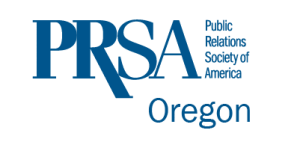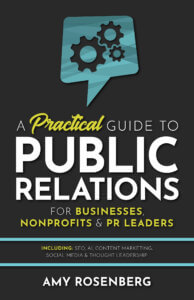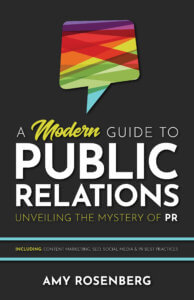![Job Seeking During COVID-19 with Mac Prichard [Podcast]](https://www.veracityagency.com/wp-content/uploads/Mac-PR-Talk-with-Mac-Prichard.jpg)
Job Seeking During COVID-19 with Mac Prichard [Podcast]
Job Seeking During COVID-19
It may not be the ideal time to look for a new job, but you may not have a choice. In this episode of the PR Talk podcast, we talk with the host of Find Your Dream Job Podcast Mac Prichard.
Are there even any jobs out there?
We went from record low unemployment to great depression levels almost overnight. However, some employers are still hiring. Mac points out that while he used to have 200 jobs in his weekly Mac’s List email, he now still has 75 or so. It is a big drop, but not zero.
So, what do you do?
The basics matter more than ever. You need to establish a job seeking goal and have a plan. Mac says that using a “spray and pray” approach is even less likely to land you the job you want (or even land you a job at all as that position you randomly applied for is someone else’s dream job and they have put in the effort).
Many positions are never even published and even if they are, they’re likely filled through a referral or personal connection. You need to continue (or start) building relationships via informational interviews and virtual networking.
How to network virtually
Amy asked Mac for some tips to be a successful virtual networker. His key points included:
- Use the networking tools you always have including the phone, email and social media.
- Webinars can also be a good virtual networking tool. Connect via LinkedIn with the presenter ahead of time and come with questions to engage and set yourself apart from the crowd.
- Join professional groups and attend virtual happy hours. Just like an in-person meet-up or happy hour, the more you engage, the more value you will get.
The furloughed worker side-hustle
When the conversation reached how to maximize periods of furlough, Mac said furloughs might present ideal times to start side-hustles. You can get a feel for if it will be a good move for your future career or full-time gig. In fact, Mac started his agency as a side-project.
A couple of final tips
Don’t forget to take the time to enjoy the things that are good in your life. Even if you need to get a new job now, Mac suggests limiting yourself to 35 hours per week of active job seeking. Otherwise, you will burn out and you need to pace yourself.
Mac left us with a great work-from-home tip. If you are fortunate enough to have a dedicated workspace, shut the door when you are not in there to conserve a sense of balance. If you don’t have a separate space, put your laptop in a drawer at the end of the day or over the weekend. Don’t just work non-stop so the days all blend together. You still need to strive for some work-life balance.
About the guest: Mac Prichard
Mac Prichard is the founder and president of Prichard Communications, which was founded in 2007. He has a master’s degree in public administration from the John F. Kennedy School of Government at Harvard University, and a bachelor’s degree in political science from the University of Iowa. His career experience includes working for both Earl Blumenauer and John Kitzhaber and founding a second company called Mac’s List.
Connect and follow Mac’s List on social media:
This episode of PR Talk is brought to you by PRSA Oregon
Throughout Oregon and Southwest Washington, PRSA provides members with networking, mentorship, skill building and professional development opportunities – whether you are a new professional fresh out of college or a skilled expert with 20 years in the industry. Check out PRSAoregon.org for more information on how membership can help you grow and connect.



![Mac Prichard of Mac’s List [Podcast]](https://www.veracityagency.com/wp-content/uploads/Macs-List-PR-Talk.jpg)

![Mac Prichard: Prichard Communications [Podcast]](https://www.veracityagency.com/wp-content/uploads/PR-Talk-Podcast-Prichard-Communications.jpg)



